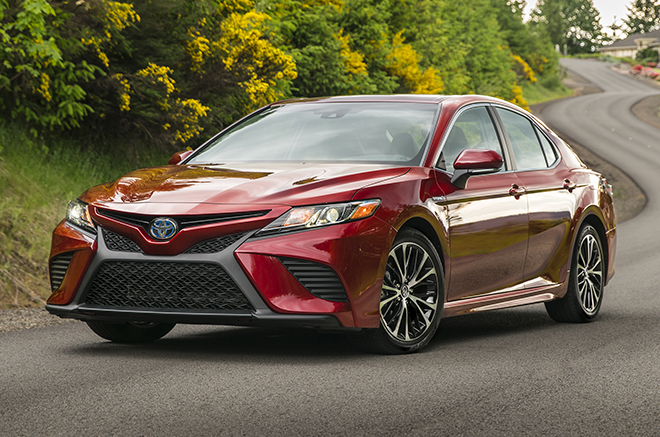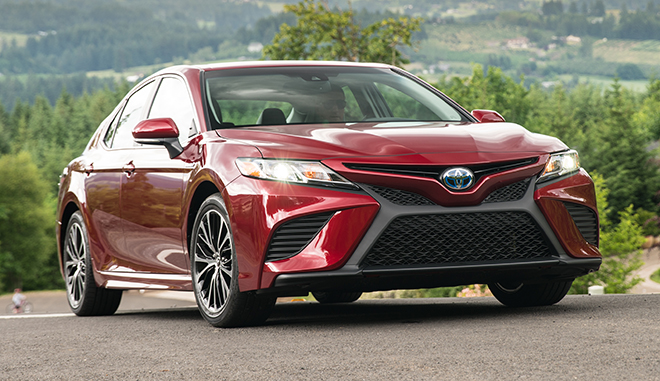The sedan (or saloon, as our British friends call it), which has been the standard form factor for passenger cars for a century, now seems to be a dying breed, as SUVs and crossovers take over the market. Consumers love the extra space and increased ride height of an SUV, and automakers love the higher profit margins. And the few who are interested in saving gas (or who simply don’t like larger vehicles) are trending toward hatchbacks.
GM and Ford are in the process of phasing out sedans in the US market. In Europe, German sedans are still considered the pinnacle of automotive excellence, but buyers over there are steadily migrating to SUVs as well. Toyota, however, has shown no signs of abandoning sedans – its Camry was the best-selling sedan, and the seventh best-selling car (including pickups) in the US for the first half of 2018 (according to Kelley Blue Book). However, Tesla’s Model 3 is beginning to muscle in on Toyota’s territory – CleanTechnica estimated that the new EV was the sixth best-selling passenger car (excluding pickups) in the US in November.
Arguably, there’s no practical reason to drive a sedan – they offer little cargo space, and you can buy a hatchback with better fuel economy (the Prius Prime), or an SUV with equal performance (Model X). Of course, practical considerations have never been a primary motivator in the auto market, and some, including your correspondent, still like the appearance and the ride of a sedan. However, the overwhelming trend in today’s auto market shows that that is a minority opinion.

Charged recently checked out the Toyota Camry Hybrid XLE for an extended period, and we loved driving it. Like every Toyota hybrid we’ve driven, it has plenty of pickup for city driving, and the powertrain shifts between gas and electric power as smoothly as you could wish.
There’s really nothing not to like here – the Camry Hybrid LE matches the fuel economy of the standard Prius, and it’s a little roomier and more comfortable for passengers. Of course, the sore point of a sedan is cargo space, but the Camry’s trunk is respectable – like most modern sedans, when you fold the rear seats down, the trunk is open to the passenger compartment, allowing you to load long objects. It’s also worth noting that the Camry Hybrid has the same amount of cargo space as the legacy Camry.
It’s a bit puzzling that the base level LE trim gets substantially better mileage than the SE and XLE versions – part of the reason could be its slightly lower curb weight. The LE version also sports a lithium-ion battery pack, rather than the nickel-metal hydride pack found in the SE and XLE trims. Some hybrid experts believe that Li-ion packs last longer, and suffer less degradation in hot climates.
2019 Toyota Camry Hybrid
| Engine: | 2.5-liter 4-cylinder |
| Electric motor: | 118 hp (88 kW) |
| Total system power: | 208 hp |
| Fuel economy: | LE: 52 mpg combined; SE, XLE: 46 mpg |
| MSRP: | LE: $28,150; SE: $29,850; XLE: $32,725 |


















































































